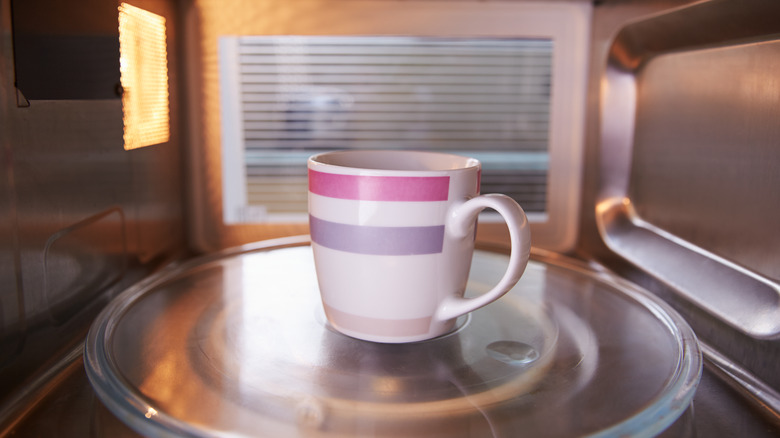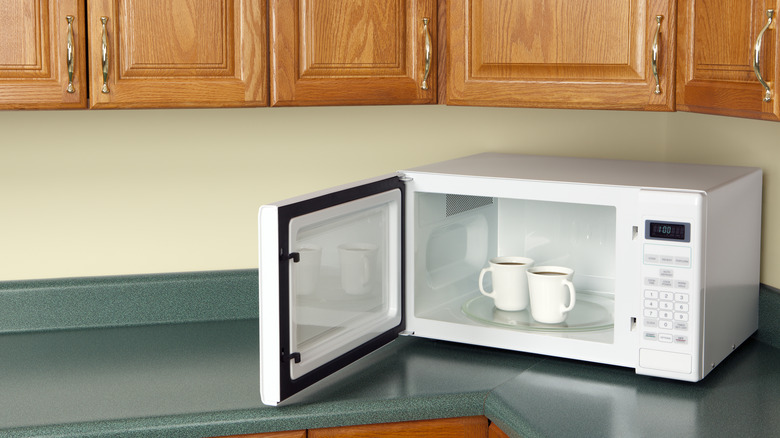Here's What Happens To The Flavor Of Your Coffee In The Microwave
A day at work often begins with a steaming cup of coffee. If you're busy or distracted, that hot cup of coffee might sit on a desk or a table for long enough that it stops steaming. But reheating the coffee never seems to work very well — coffee usually tastes bitter when it comes out of the microwave. What exactly is the microwave doing to your coffee while it's spinning around in there?
The short answer is "not very much." Microwaves can affect the flavor of your coffee, but for the most part, what you're noticing is all the ways your coffee is changing on its own: Its taste begins to degrade the moment you pour it into your mug as it sits and cools, although it can take half an hour or more before the taste deteriorates enough to be noticeable. Often, that's around the time you microwave it to reheat it, which makes the microwave easy to blame. You're also more likely to notice a change in flavor once the coffee is hotter.
The chemicals of coffee
Naturally, coffee tastes best right after it's brewed: When you brew coffee, you're essentially beginning a giant chemical reaction with lots of volatile compounds that shape the beverage's taste and smell. Over time, those compounds break down into acids, and the coffee's flavor becomes more bitter. Once coffee hits room temperature, enough time has passed for the flavor to take a huge, acidic hit. Also, like many other drinks, coffee will also oxidize when left out, which means that exposure to oxygen is destroying its flavor and its distinctive aroma.
That said, depending on how much you reheat your coffee, that extra heat could be speeding up this process. If a cup of coffee is reheated past 120-140 degrees Fahrenheit (around 49-60 degrees Celsius), which is the optimal temperature for drinking coffee, it can create problems. Microwaves work by bouncing radiation around their metal walls and vibrating the molecules inside the food or drink, which heat it up. When it comes to coffee — at a hot enough temperature — this can basically restart the brewing process, which causes more bitter-tasting compounds to be released. There's a reason you don't re-brew coffee.
Don't get bitter
Bitter coffee is still safe to drink even if these sorts of chemical reactions have taken place. A cup of black coffee can sit at room temperature for about a day before it needs to be poured down the kitchen sink, although if you've added milk or cream, it can go bad after just two hours.
There's no real way to stop brewed coffee from losing its flavor, although there are plenty of ways to keep coffee beans fresh for longer before you brew: The beans can oxidize too, so strategies like freezing coffee the right way or simply keeping the beans away from sunlight or heat can help. Whole coffee beans usually stay fresh for a few weeks, while pre-ground coffee stays at its best for about two weeks before losing flavor, although they don't really spoil like other foods.
Otherwise, reheating brewed coffee in the microwave won't taste great, but if you just want the boost, then you'll still get the same amount of caffeine — the number of caffeine molecules won't change.


